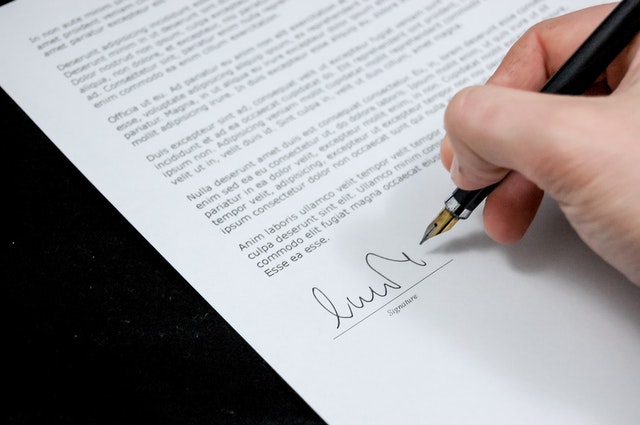Who hasn’t dreamed of running a hotel or Bed & Breakfast (B&B) at some stage in their life? The idea of being your own boss, having flexible hours, residing in the country or by the sea, alongside meeting interesting people from around the globe? Sounds wonderful right?
It certainly can be, especially if you ensure you do your research and know exactly what you are getting into before you part with your capital. Failure to garner professional advice could see you operating a hotel or B&B akin to “Fawlty Towers” (without the humour).
According to research, hotels are a solid investment. PwC’s latest UK Hotels Forecast 2016 predicts that UK hotels will continue to see RevPAR (revenue per available room) growth in the remaining months of 2016, with the strongest growth forecast for the Provinces (4.2%) as opposed to London (2.3%), which already operates at a very high level. Occupancy is predicted to continue growing..
By 2025, the British tourism industry is predicted to be worth around £257.4 billion (9.9% of the GDP).
The British tourism industry benefited over the summer period just gone because of the weaker pound, whilst international tax-free shopping spending rose by 7% overall in July, compared to the same month last year, according to retail tourism analysts Global Blue.
Considerations when buying a hotel
Before you even begin to look for a hotel to buy, a great deal of consideration must be paid to the type and structure of your purchase.
There is a wealth of choice as to which type of hotel to purchase and much will depend on the capital you have available and the lifestyle you wish to pursue. Larger private and resort-style hotels will usually require a significant investment of capital initially, as well as a significant amount of time and expertise to turnover a profit. Those looking for a business which provides a lifestyle that entails a reasonable income to live on and a degree of freedom and flexibility, may prefer to consider a B&B or a Hostel.
In terms of business structure, forming a limited liability company to acquire the hotel business in its own right will allow you to limit your personal liability in respect of the hotel business and provide a vehicle for acquiring future investment. If you (and your partner) plan to open a small B&B, a formal partnership may be a preferred business model. Either way, you will need a solicitor to draw up a shareholder or partnership agreement depending on the structure to choose to adopt, to ensure issues such as profit sharing and dispute resolution methods are documented to avoid time-wasting disagreements developing in the future.
Once you have selected a hotel / B&B, thorough due diligence must be undertaken, from a financial, business and legal perspective. Accounts and financial forecasts need to be examined, as does the intended market the hotel is aimed at and the local competition. On the legal side, your solicitor will need to examine existing and proposed supplier contracts, employment agreements and any other commercial agreements entered into by the existing owners such as the lease of the building if they don’t own the freehold and land that the hotel sits on. Details of any administrative action or litigation threatened or pending against the hotel must also be investigated. You certainly don’t want to be burdened with the liability of the previous owner’s ongoing disputes!
Separately, you will need to ensure proper structural, engineering and building reports are done on the premises itself. Make sure you also consider factors such as car-parking and accessibility for those with disabilities.
If the hotel / B&B you are purchasing has employees, you will need to consider your obligations under the Transfer of Undertakings (Protection of Employment) Regulations 2006 (TUPE) which protect employees’ rights when a business is transferred to a new owner.
Before any substantive work is undertaken, it is prudent to have a Head of Terms (HOTs) document drawn up. This document is not legally binding (unless a term specifically states that it is) which sets out the key terms of the deal. Not only does it demonstrate a commitment on both sides to proceed with the transaction, it also provides a good point of focus for the matters which need to be negotiated. Well-drafted HOTs can also reduce legal fees because the key terms will have been negotiated and recorded before the sale and purchase agreement is drawn up.
How the hotel industry is regulated
There are a minefield of regulations and policies which must be abided by. Those looking to purchase or run a hotel / B&B will need to ensure they seek advice on their compliance obligations, as not knowing the law or how it applies to your business provides no defence in British courts.
To name one of the regulations, you will need to comply with the Credit Card Order 1990 as well as the Data Protection Act 1998. For example, any information about past or present guests cannot be given out to third parties without permission.
If you are serving food, then you will need knowledge of the Food Safety Act 1990 (as amended). It is not compulsory that you and/or your staff have an up-to-date Food Hygiene Certificate. However, you may decide it is good practice for any staff who handle food to have one, as it is an easy way to show authorities that you are complying with your obligations to provide adequate food hygiene training.
It is imperative that you take food hygiene and the general cleanliness of the hotel / B&B seriously. If an environmental health officer conducts an inspection and you are found in breach of the food hygiene standards, your premises can be closed until the breaches are rectified, damaging not only your turnover, but your business reputation.
A final example, you should also be aware that it is an offence to sell alcohol without a valid license and to supply it to anyone under the age of 18 years.
Health and Safety
Having adequate health & safety policies and procedures in place is essential for anyone thinking about running a hotel / B&B.
Fire is one of the greatest threats to the safety of staff and guests. As well as the obvious safety measures and precautions, such as providing enough fire exits, smoke alarms, fire wardens and adequate instructions and signage on how to get out of the building in case of an emergency. In addition, all furniture must be fire retardant so it complies with the Furniture and Furnishings (Fire) (Safety) Regulations 1988 (as amended). If you do not adhere to legal fire obligations, you are unlikely to obtain insurance.
Not only do you have a duty to your guests to comply with health and safety obligations, you must look after the welfare of your employees. The Health and Safety at Work Act 1974, sets out an employer’s obligations regarding the health and safety of staff members. For example, protective gloves should be provided for cleaners and laundry workers who handle dangerous chemicals. Proper training needs to be provided to staff lifting heavy objects such as suitcases or produce deliveries for the kitchen to ensure they do not injure themselves.
The Equality Act 2010 will also affect you as a hotelier and employer. Under this Act, it is unlawful to discriminate against any employee or customer (that is to treat them less favourably) on the grounds of:
- disability
- gender reassignment
- pregnancy and maternity
- race – this includes ethnic or national origins, colour and nationality
- religion or belief
- sex
- sexual orientation
- age
- marriage or civil partnership
For example, it would be unlawful for the owner of a hotel to refuse to offer a room to a same-sex couple.
In summary
Whether you are investing in a chain of hotels or fulfilling your dream of owning a lifestyle hotel / B&B, the legal elements of purchasing such an all-encompassing business are considerable. It is essential that you instruct a solicitor who is experienced in managing the purchase of complex, high-value assets. Not only will you require their advice on the actual purchase of the business, you will also need to rely on them to assist you with structuring the financial aspects of the purchase, and ongoing commercial and employment matters.
Saracens Solicitors is a multi-service law firm based in London’s West End. We have dedicated and highly experienced commercial, financial and property law teams who will collaborate together to ensure your hotel purchase goes through smoothly. For more information, please call our office on 020 3588 3500.
Do you have any comments to make on this blog? Please feel free to add your thoughts below.
Table of content
Recent Posts
Tokenization: UK Law On Tokenizing Real-World Assets
The world of finance is being reshaped by tokenization, where [...]
Lidl v Tesco: A Clubcard Catastrophe
In an unexpected turn of events, discount supermarket giant [...]
EU vs Big Tech (Apple / Meta / Google): A Breakdown On The Crackdown
The European Union (EU) has launched investigations into three [...]




